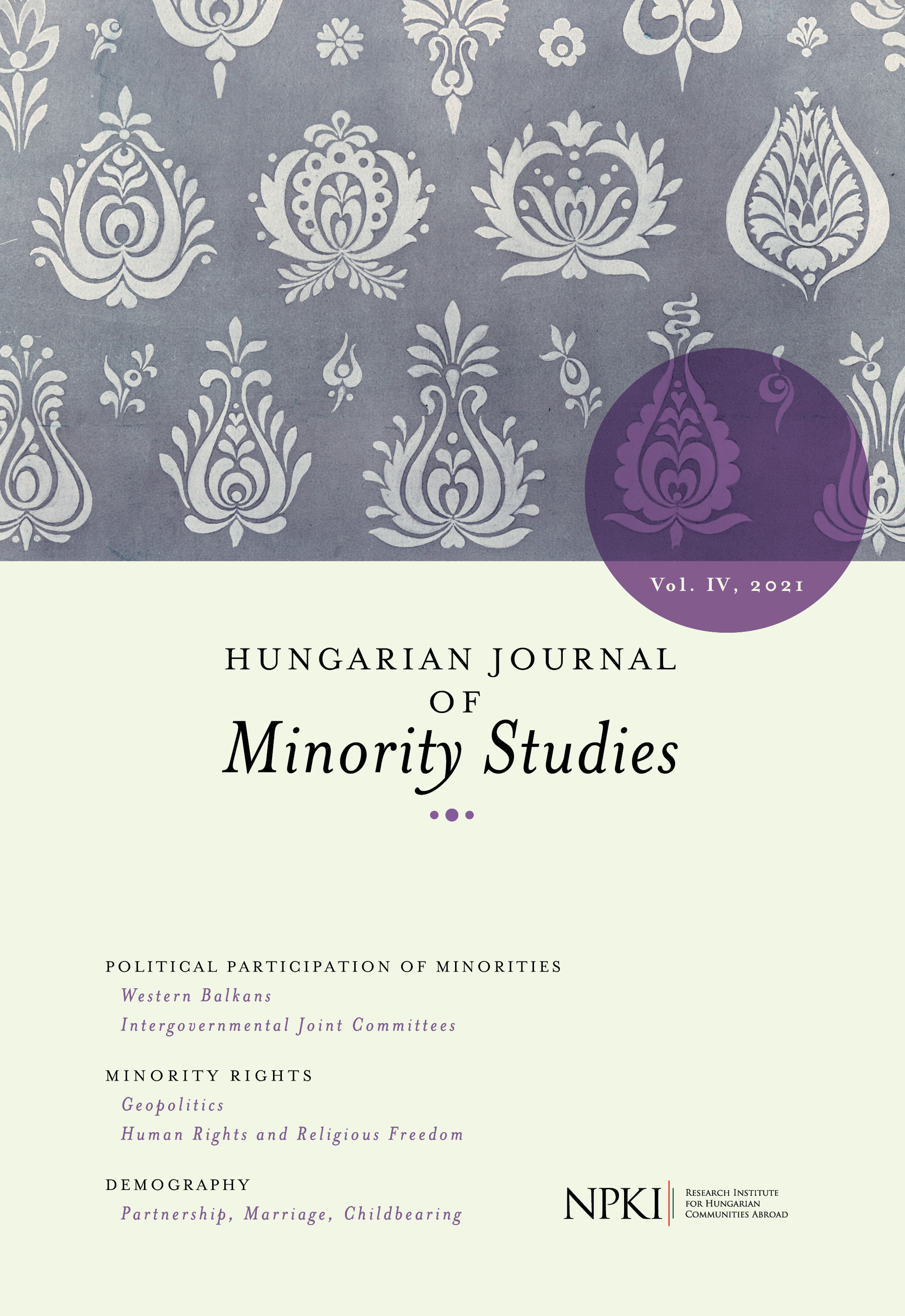The Political Participation and Representation of National Minorities in Central Europe: the Model of Intergovernmental Joint Committees between Hungary and its Neighbors
The Political Participation and Representation of National Minorities in Central Europe: the Model of Intergovernmental Joint Committees between Hungary and its Neighbors
Author(s): Csilla VargaSubject(s): Politics / Political Sciences, Politics, History, Social Sciences, Political Sciences, Sociology, Transformation Period (1990 - 2010), Present Times (2010 - today), Ethnic Minorities Studies
Published by: Nemzetpolitikai Kutatóintézet
Keywords: National Minorities;Hungary;minority protection;
Summary/Abstract: The paper examines a certain form or regional model securing the opportunity of political participation and representation of national minorities in Central Europe: namely, through the work of bilateral committees established between Hungary and its six neighboring countries (Ukraine, Slovenia, Croatia, Slovakia, Romania and Serbia). The set-up of intergovernmental committees on national minorities is not a Central European peculiarity, since many other states have established such bilateral bodies throughout Europe. Although, in Central Europe the issue of national minority protection has and is a very much debated topic, and the high number of national minority groups residing in CE states secures an excellent framework for analysis. The examined six committees have been established in the 1990s and in 2000s by the treaties on good neighborhood and cooperation or by bilateral treaties on the protection of national minorities. The importance of bilateral commissions lies, in large, in the introduced development that the bodies involve the representatives of national minorities into their decision-making processes, and into the general work of commissions, therefore, securing the opportunity of participation for the mentioned group of people. Necessarily, the effectiveness of minority representation and participation varies in the examined bodies depending on several factors determining the real efficiency of their operation. The article presents the general functioning of bilateral committees on national minorities, focusing on the selected Central European region and on the work of the above-mentioned six committees.
Journal: Hungarian Journal of Minority Studies
- Issue Year: 4/2021
- Issue No: 1
- Page Range: 39-69
- Page Count: 31
- Language: English

